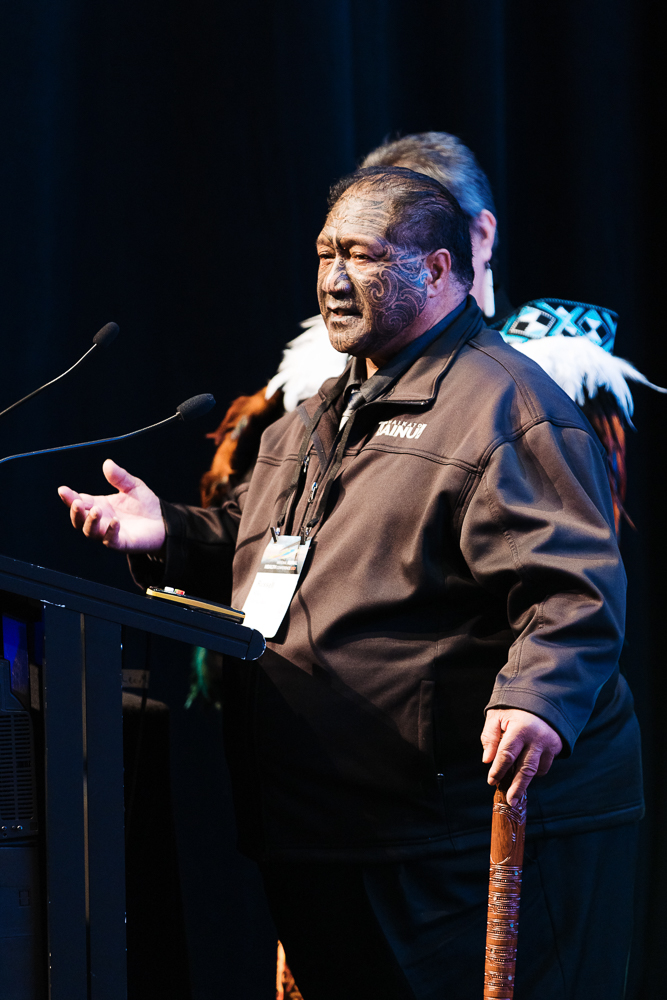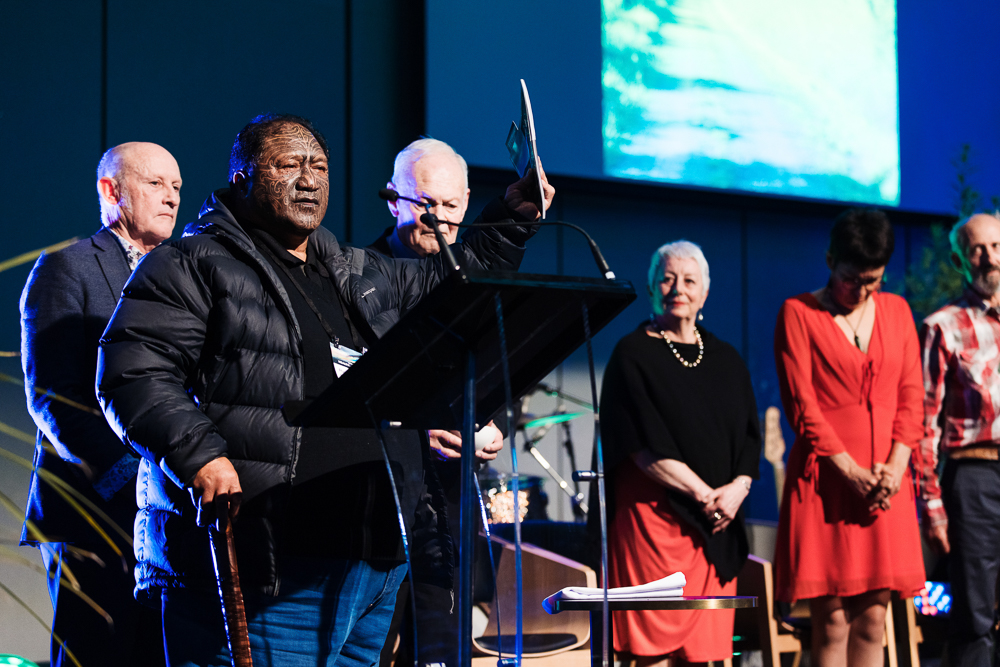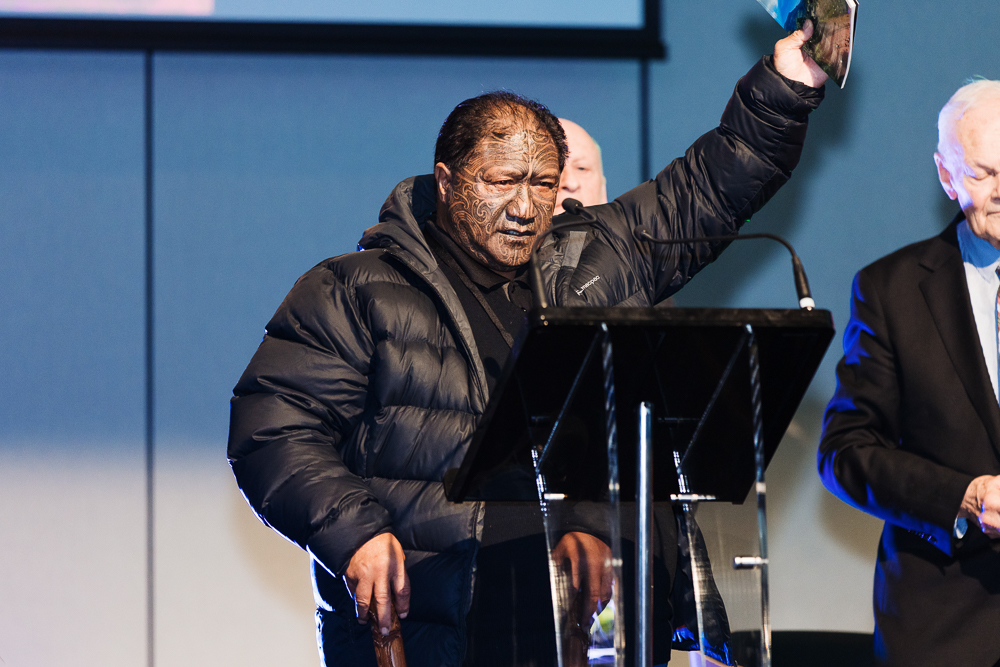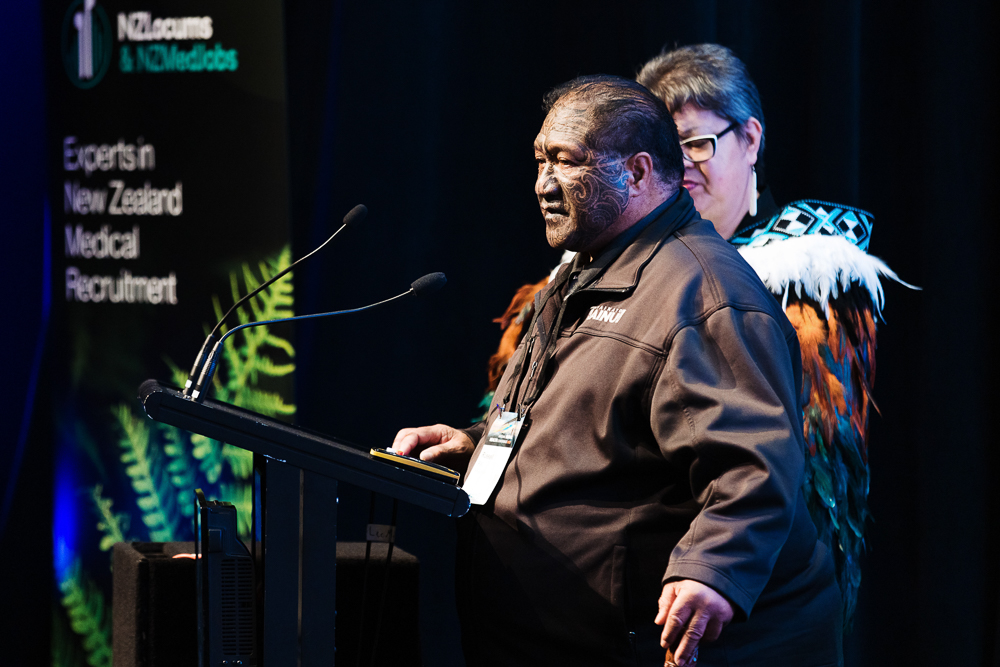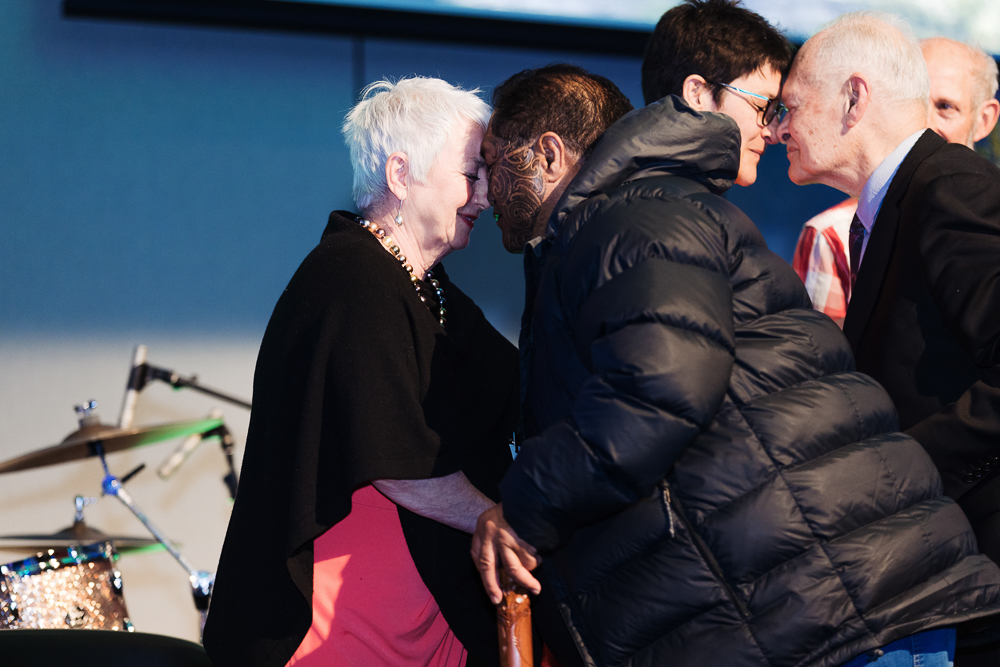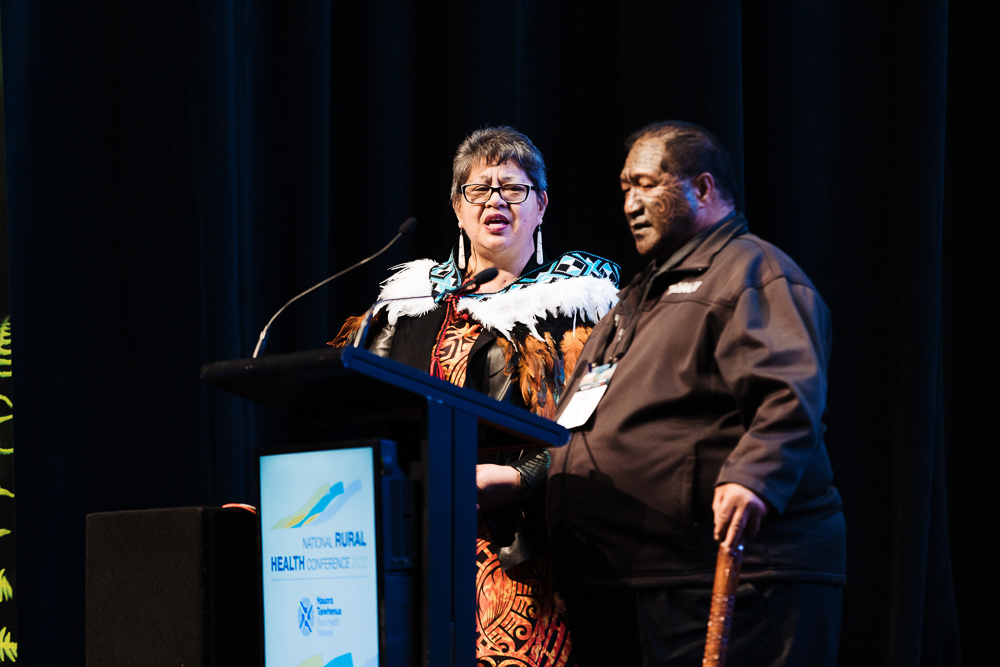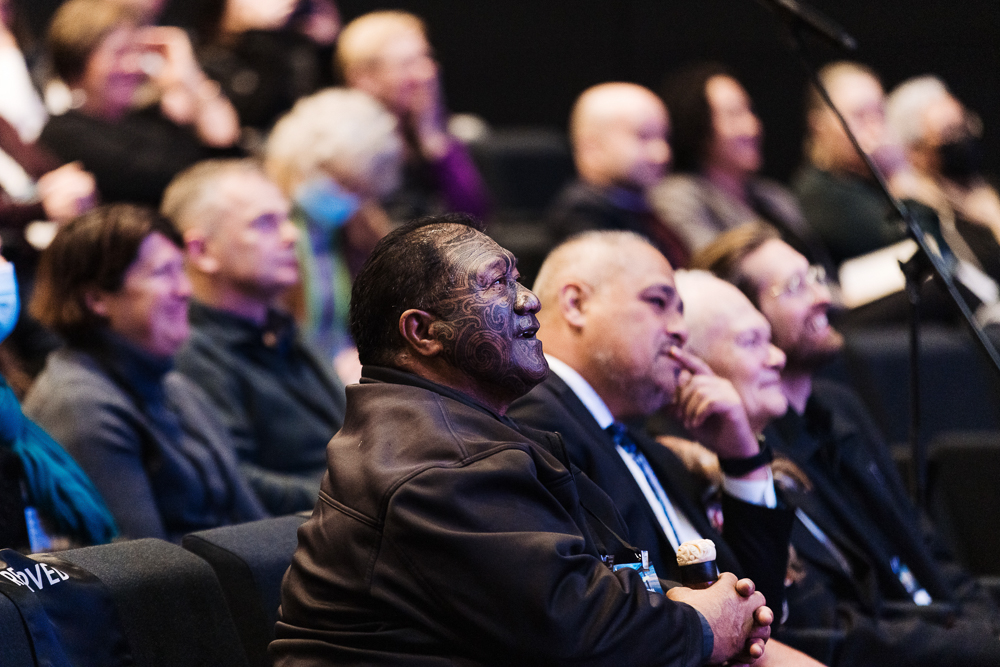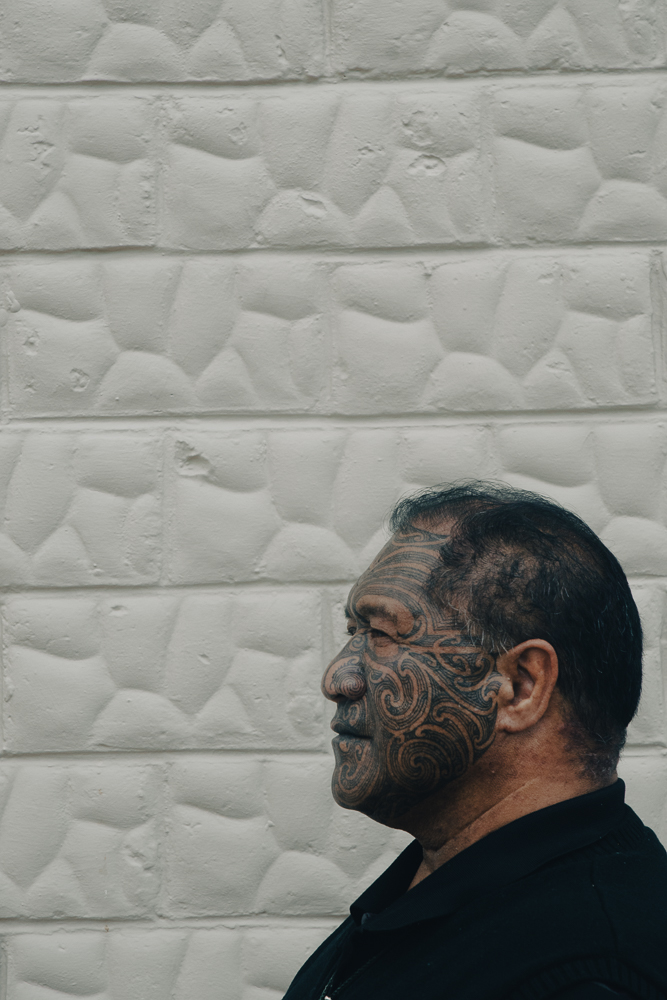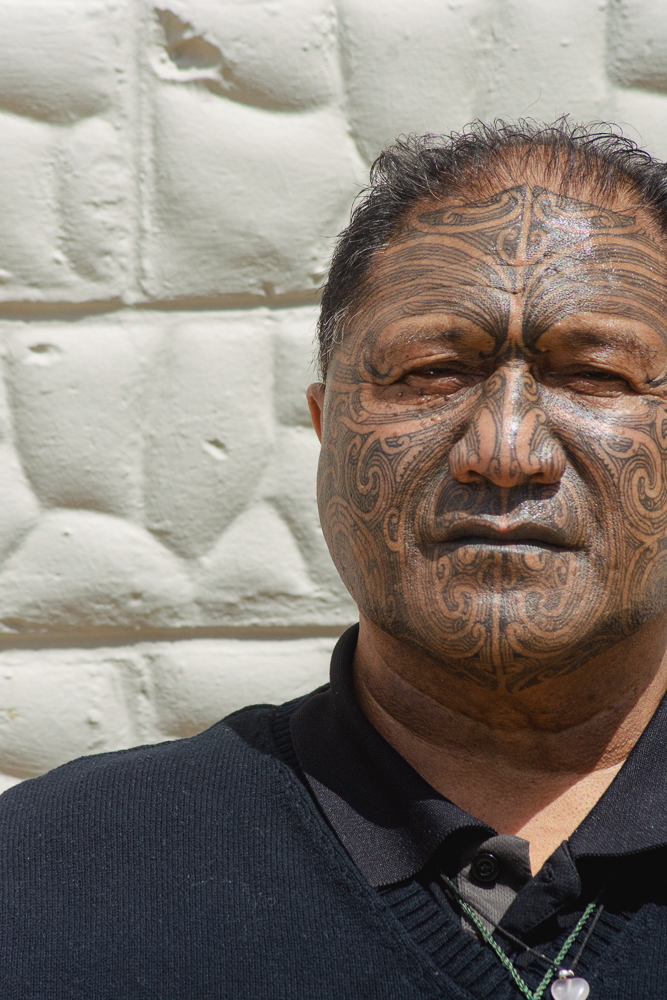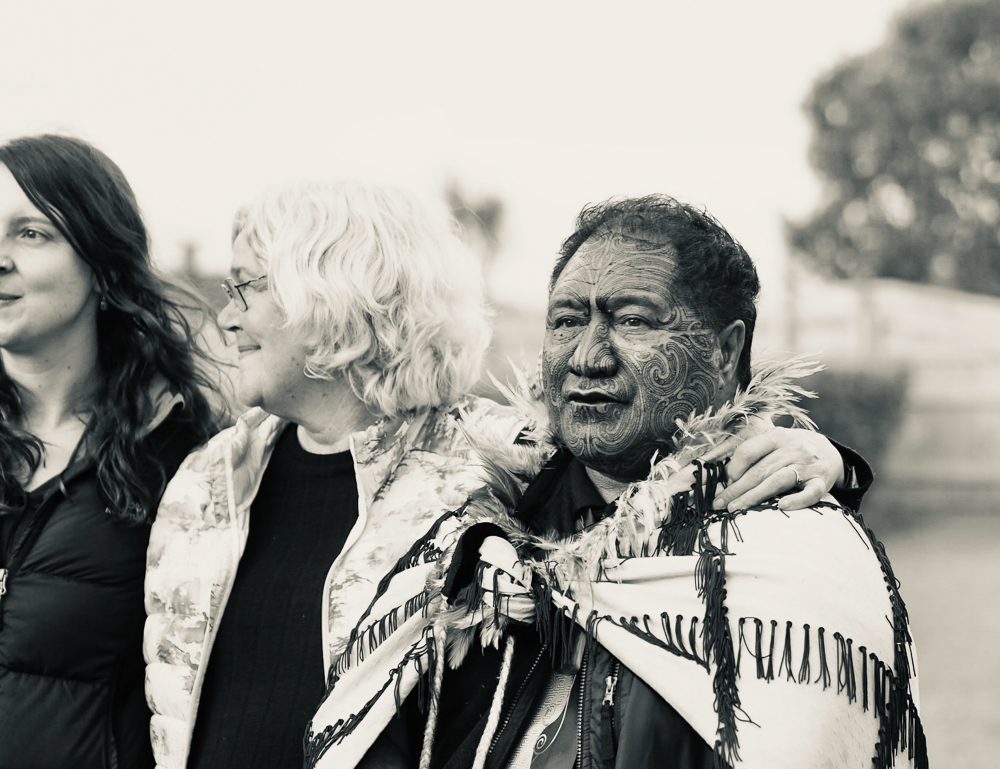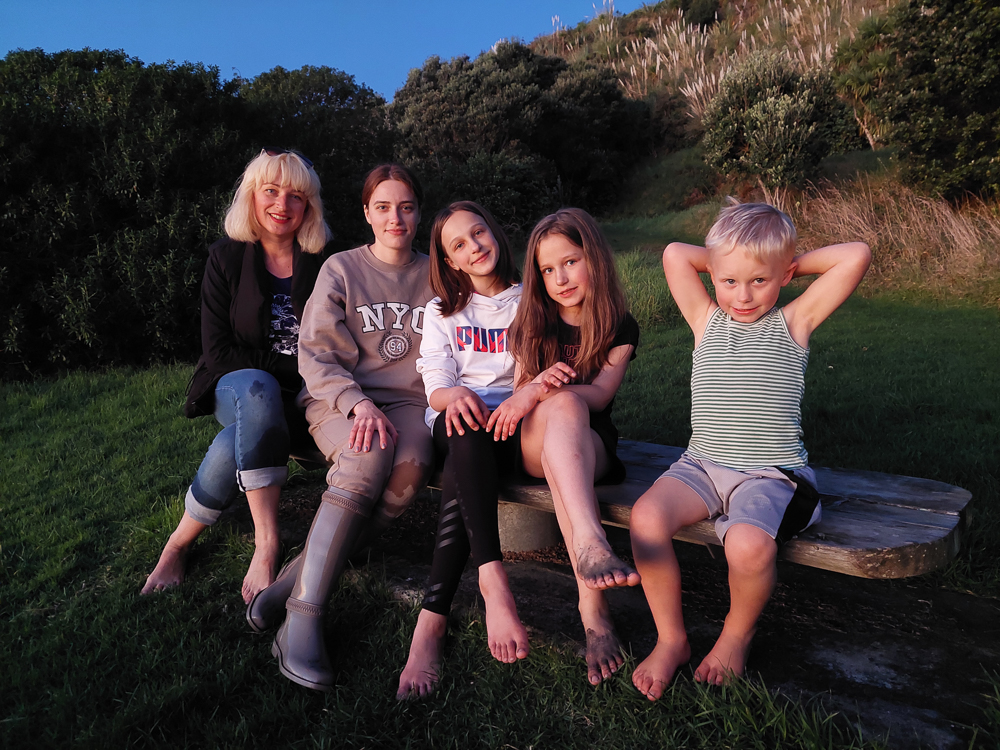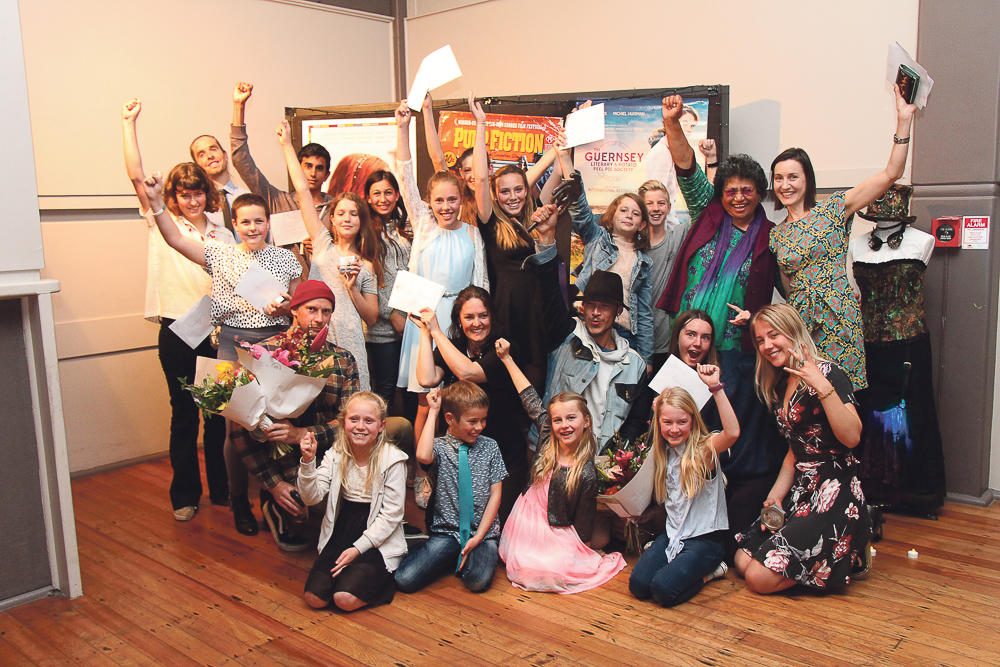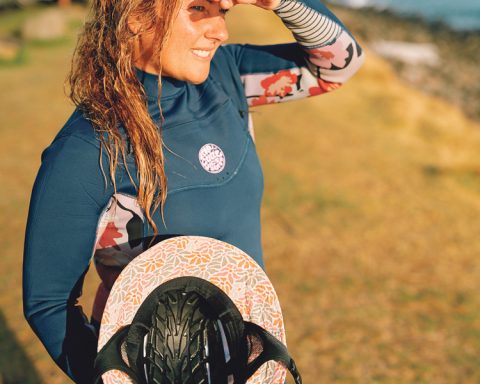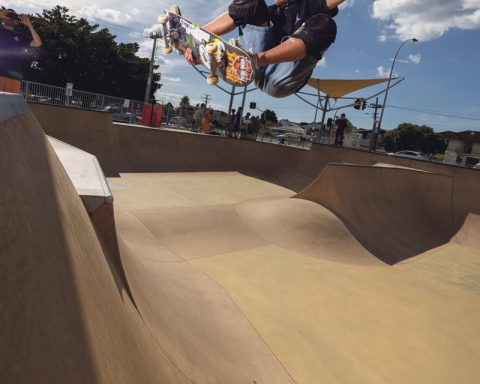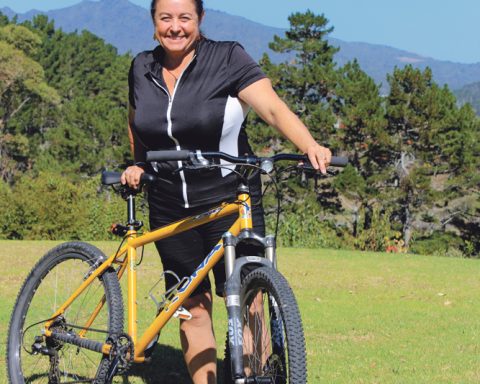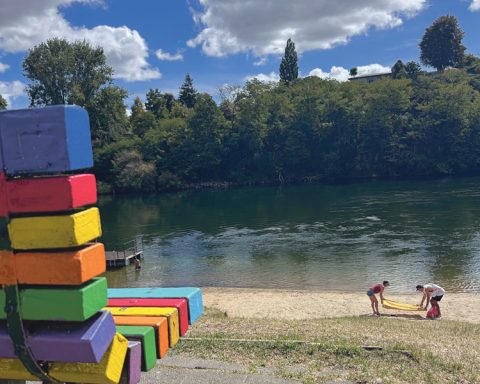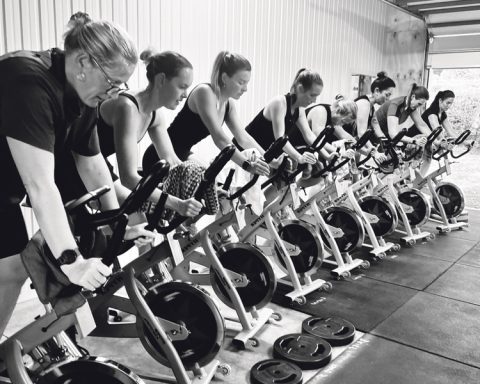Russell Riki doesn’t take his role as the local kaumatua lightly.
Not only does he feel the weight of his community, both Māori and Pākehā, but always at his side are his ancestors.
He now wears his pride in his whakapapa front and centre with a mataora (full facial tattoo) he received the same weekend as Koroneihana – the celebration of the reign of Māori monarch Kiingi Tuheitia Pōtatau Te Wherowhero VII.
An auspicious time for Tainui to kawemate (remember lost loved ones), and when politics are debated, Russell, 62, chose local artist Simon Te Wheoro as ringataa (tattooist) for the eight-hour sitting at Poihakena Marae.
“I meant to get this done when I turned 50 and the only reason I declined was because I felt I didn’t have the right because I’d married outside of the tribe,” he says.
For the past 10 years it has been on his mind.
He had encouraged many women who came to him seeking advice about getting their moko kauae; advising them to talk to the spirits of their ancestors and family.
The seed of wanting his mataora started to grow stronger and stronger, and he finally heeded his own advice.
Covid saw plans for his mataora ceremony postponed until this year on his birthday on 21 August, which falls during Koroneihana. Russell chose Poihakena Marae because that was where he first stood in front of the Māori Queen at age 27.
“This day is something my children, their offspring and my friends will remember for the rest of their lives,” he says.
Whaingaroa rangatira Wetinimahikai from Rakaunui Paa was Russell’s last tupuna (ancestor) to walk amongst the elders who were adorned with mataora and moko kauae. Mahikai, who died in 1899, could recite back 20 generations of his whakapapa.
Russell grew up with his grandparents on their farm at Waikaretu, between Raglan and Port Waikato.
They moved to Rakaunui Paa in Raglan for his grandfather Kuru Riki Wahanga to live his final years on tupuna land.
Russell was a young teenager at the time and this was a very different place from Waikaretu where he had spoken little English.
Māori was the family’s first language and as the eldest son there was an expectation that he would learn the old traditions to keep them alive.
Spending much of his younger years with the tribal elders, Russell learnt the old ways by osmosis, as he says; everything was oral and nothing was written down.
“The old people would be chanting and I would just be around caring for them and always listening.”
At 15 years old, Russell ran off to Wellington to escape an arranged marriage proposed by the elders.
Reluctant to return as he knew he had shamed the tribe, it was his grandmother’s death a year and a half later that drew him back home.
He didn’t stay long, moving to Auckland and then Palmerston North where he met his wife Marianne Foster on his 21st birthday.
Bringing her home to introduce her to the family didn’t go too well; his grandfather didn’t accept the relationship to a Pākehā.
Russell went back to Palmerston North with Marianne to start a family but a year later the elders had convinced his grandfather to take Russell back, and to accept his wife.
Returning with Marianne, baby daughter Koriana and son Russell Wahangaoterangi, four more sons were to follow – Roydon Te Hau, Manaaki, Turanga and Wharara – and Russell once more undertook learning the old ways of his people.
At the tangihanga of his grandfather Kuru Riki Wahanga, Russell was thrust into a major oratory role when he was just 27.
The late Māori Queen Te Arikinui Dame Te Atairangikaahu was paying her respects at Poihakena when a kuia gave Russell a nudge with her walking stick.
“Very few people get a chance to stand up for the first time in their own house in front of the Māori Queen. Out of respect to her, and to my granddad because he died, I stood up in front of her and that’s when the word was said – e hinga tete-kura e ara ana tete-kura – when one falls another rises.”
Keeping alive the old ways is Russell’s driving force.
He established a trust called Wahangaoterangi in the name of his tupuna, to have wananga support traditional Māori ways in the modern world when people require guidance that is of a more spiritual and traditional nature.
Along with trust members Koriana Riki, Louise Middlemiss (Te Ao Marama), Sandra Geange (Noa) and Carolyn Enting (Huia), Russell is looking for funding channels in order to host the wananga free of charge.
As well as representing his iwi Ngāti Māhanga, Ngāti Tāhinga and Ngāti Hauā, Russell is the kaumatua and cultural advisor for the Raglan Medical Centre, the Raglan Museum and the Hauora Taiwhenua Rural Health Network.
His understanding of tikanga and his fluency in te reo Māori are vital to his many kaumatua and cultural advisory roles.
At the Beehive to launch the amalgamation of Hauora Taiwhenua Rural Health Network, and at the network’s national conference in Christchurch, Russell ensured tikanga (protocol) was followed and providing the whaikorereo (formal oratory).
Invited to take the position by former Raglan doctor Fiona Bolden who left West Coast Health to chair the rural advocacy organisation, Russell says it is an honour to represent Whaingaroa and Tainui as cultural adviser for Fiona and for the Māori arm of the network Te Roopu Arahi.
Along with other Māori advisers, Te Roopu Arahi play an advisory and relationship building role for the network, opening doors into rural Māori communities to ensure they have access to excellent healthcare.
“As a rural person myself who walks at the grassroots level amongst our people, I have an understanding of some of the issues facing our people,” he says.
The health and wellbeing of his people is important to Russell; he has had several health scares of his own and is the first one to hassle whanau and hāpu members to not leave it too late to visit the doctor.
“I had so many illnesses that I’ve been trying to come to grips with and I had been ignoring them a lot. It wasn’t until then that I got involved deeply with the Raglan Medical Centre and I think it’s what brought me out the other side. I’m still breathing today when I thought I never would,” he says.
“I tell all my Māori people now – go to doctors, and I nag family members – you tell dad or mum to go to the doctors. I’m really passionate about health.”
Russell has no words to describe how happy he is to have the mataora and to represent his ancestors. He is proud of his children, and hopes to encourage others to do the same as he and his family have done, reviving the mataora and moko kauae.
by Janine Jackson
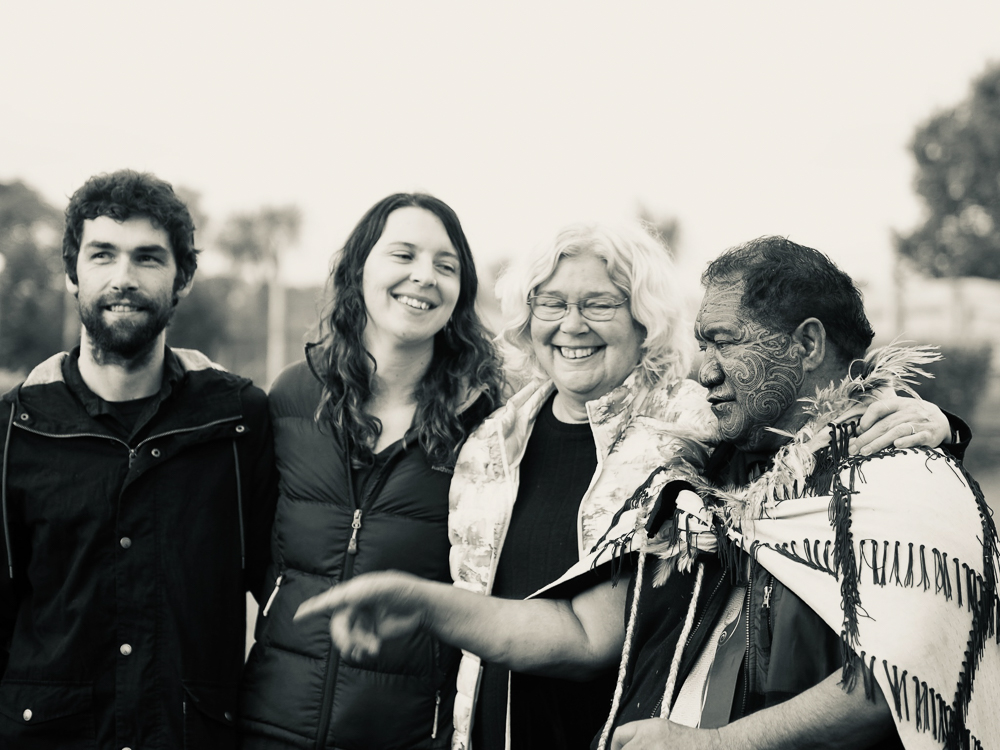
OLYMPUS DIGITAL CAMERA 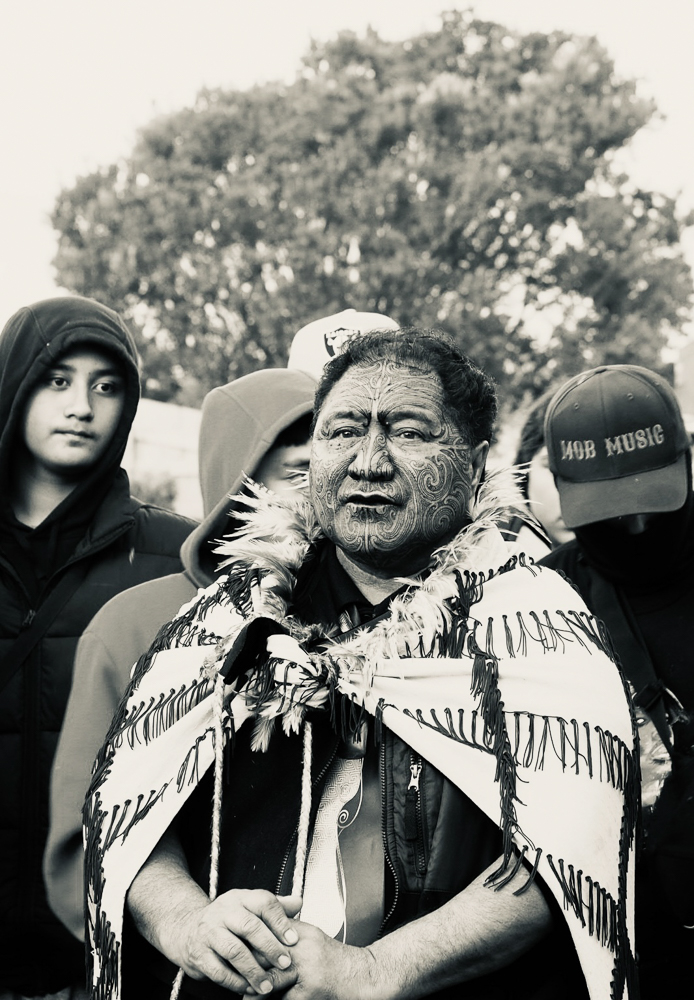
OLYMPUS DIGITAL CAMERA 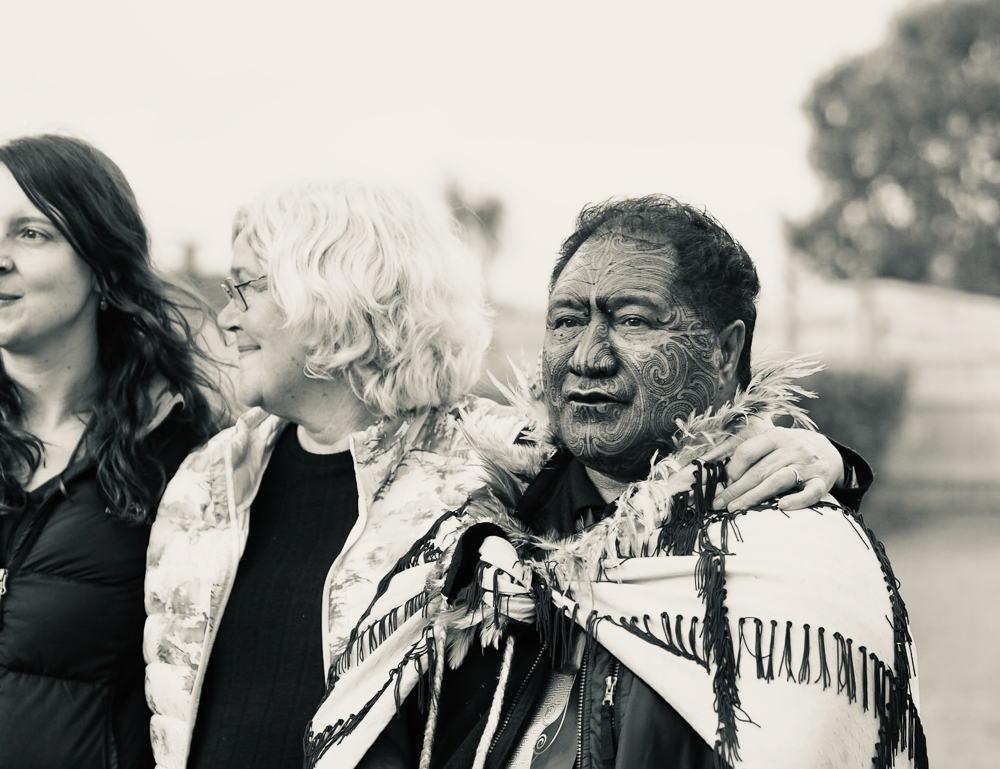
OLYMPUS DIGITAL CAMERA 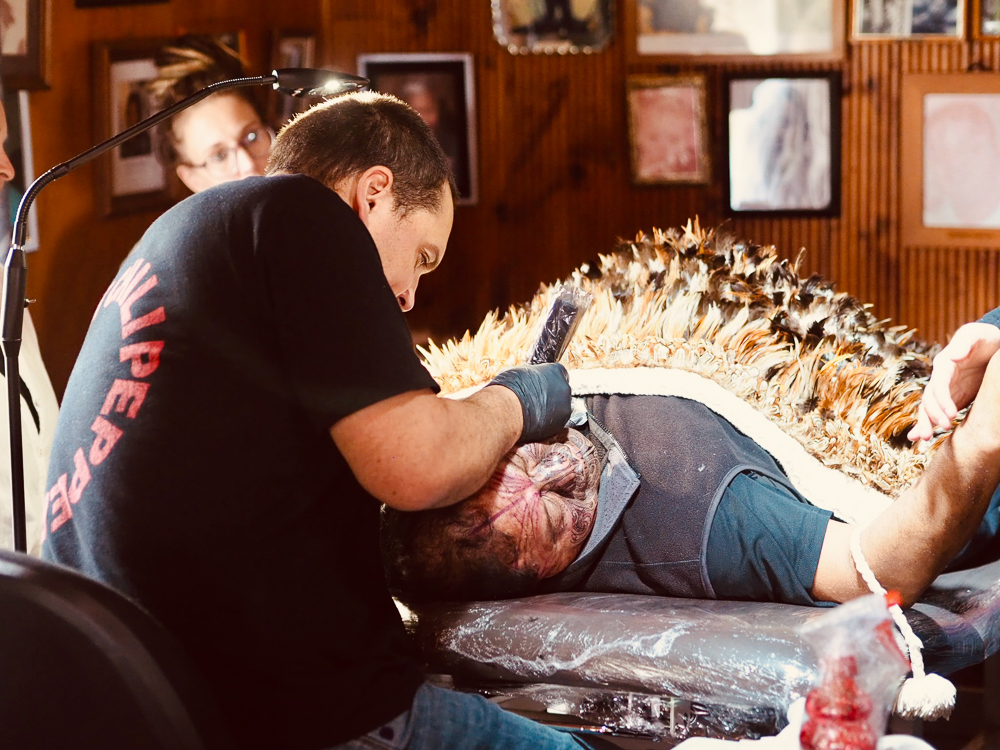
OLYMPUS DIGITAL CAMERA 